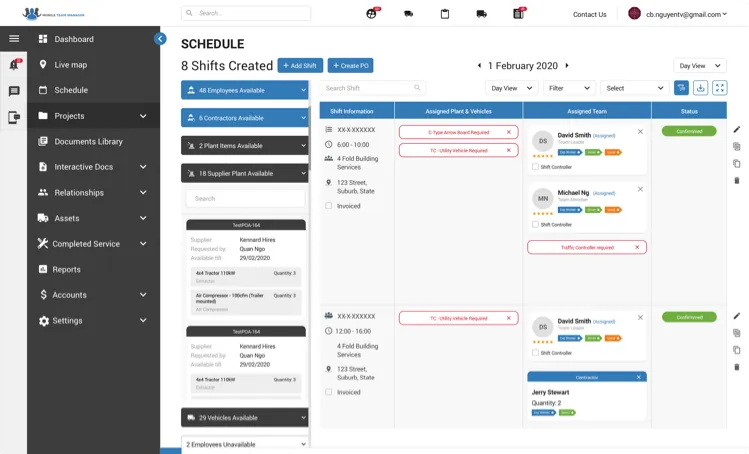-
OVERVIEW
-
SERVICES
-
MODELS
-
WHY CHOOSE US ?
-
TECHNOLOGIES
-
OUR PROCESS
-
FAQS
Offshore Software Testing Services

- Besides full-cycle product development, we also offer a wide range of Quality Assurance and Software Development services. Even though the number of offshore testing companies is growing by leaps and bounds, Saigon Technology keeps being ahead of the competition thanks to the competence and extensive technical expertise of our QA engineers.

Full-Range QA and Software Testing Services
Mobile Application Testing
Web Application Testing
Website Testing
Manual Testing
Automated Testing
On-Demand Software Testing
Engagement Models We Offer

Staff Augmentation
Quickly scale your team with top-tier talent. No long-term commitments, just flexible solutions to meet your evolving needs.
Perfect for Businesses that:
- Demand specialized skills for specific projects
- Need to adjust to fluctuating workloads
- Require ongoing support for complex tasks
- Must adapt to dynamic market conditions

Fixed-Price Model
Perfect for projects with clear goals and deadlines. Enjoy budget certainty and on-time delivery with our fixed-price model.
Perfect for Businesses that:
- Clearly scoped projects with known requirements
- Businesses seeking budget control and risk management
- Time-bound projects with clear milestones

Dedicated Development Team
Our dedicated development team brings together professionals just for a client's project. Ideal for long-term projects, it offers continuous development. Clients gain a dedicated team integrated into their operations. This ensures consistent performance and project understanding.
Perfect for Businesses that:
- Long-term, ongoing development initiatives
- Businesses seeking seamless team integration
- Organizations prioritizing consistent performance and specialized skills
- Companies needing flexible team scaling
Spotlight on Success: Our Case Studies
Why Choose Saigon Technology?
 Vietnam's Elite Software Engineering Team
Vietnam's Elite Software Engineering Team
Saigon Technology boasts a team of top 1% Vietnamese software engineers, especially in QA and QC. Our proven track record in delivering exceptional QA testing services has benefited numerous international projects.
 100% Dedicated to Your Project
100% Dedicated to Your Project
We dedicate 100% of our resources to your project. This unwavering focus, rooted in our customer-centric and results-driven philosophy, has been a cornerstone of Saigon Technology for over a decade.
 Rapid Project Commencement
Rapid Project Commencement
We can mobilize a dedicated team within 3 business days of project initiation. This rapid turnaround time gives you a competitive edge in today's fast-paced market.
 Seamless Time Zone Collaboration
Seamless Time Zone Collaboration
We prioritize your needs and adjust our work hours to align with your time zone. This ensures effective communication and collaboration.
 Cost-Effective, High-Quality Services
Cost-Effective, High-Quality Services
We offer competitive pricing without compromising quality. Our commitment to excellence and client satisfaction drives long-term partnerships.
 Proven Quality Assurance Processes
Proven Quality Assurance Processes
With over a decade of experience, we've refined our QA processes to ensure the highest quality standards. Our ongoing investment in QA methodologies guarantees optimal results.













Our Valued Clients
Hear From Our Clients
Are you looking for a reliable software testing team?
Get in touch with our QA team
Advantages of Offshore Testing Services

 Achieve Faster Time to Market
Achieve Faster Time to Market
Multiply your software development team's effort and decrease testing time in half when outsourcing your product quality assurance process. At Saigon Technology, we use the best testing tactics and intelligent automation tools to make software testing even more effective and faster. It helps us address all the product's technical issues and meet the client's goals.
 Focus on Core Business
Focus on Core Business
Delegate time-consuming work to high-professional QA engineers and free up your time and internal resources. Saigon Technology can run best-quality software testing while you and your team focus on core business activities or additional projects. By leveraging the effort of the offshore QA team, you can multiply your business success.
 Increase ROI
Increase ROI
As known, one of the most significant benefits of offshore QA outsourcing is lower costs. It allows you to increase ROI without sacrificing the software product's quality. Saigon Technology offers cost-effective solutions to launch, support, manage, and test digital products to deliver the best quality and success for our clients.
 Access New QA Talents
Access New QA Talents
Choosing offshore QA software testing, your company gets more access to global resources, knowledge base, and new professional talents. If the product's quality is your primary business goal, our QA engineers are combat-ready to help you enhance it and guarantee your product's success in the market.
Address Your QA Challenges with Saigon Technology
Industry Leadership
Global Experience
Adherence to Proven Methodologies
Diverse Industry Expertise
Our Insights
FAQs
What is the difference between onshore and offshore testing?


Onshore Testing: Testing team is located in the same country as the development team or client.
Offshore Testing: Testing team is located in a different country.
Key Differences:
- Cost: Offshore is often cheaper.
- Time Zone: Onshore is better for real-time collaboration.
- Culture: Onshore can be better for complex projects.
- Talent Pool: Offshore offers a larger pool of testers.























































